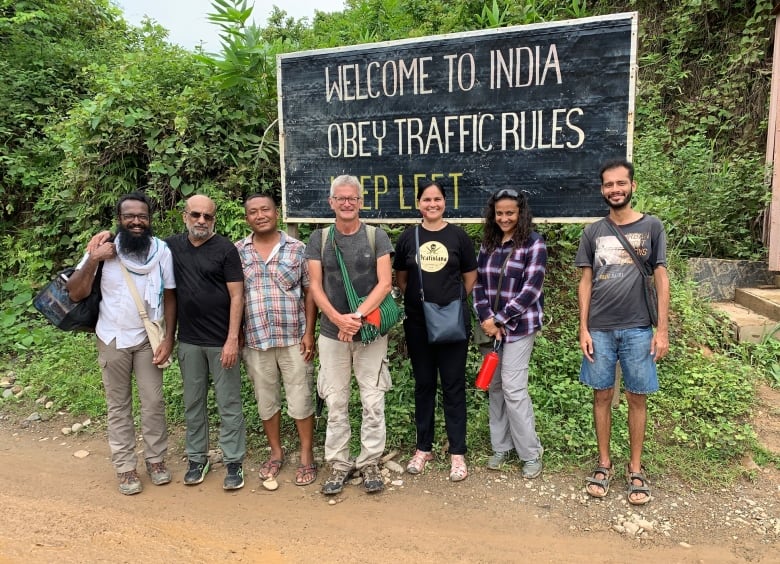As COVID-19 puts his journey on hold, globe-trotting writer worries pandemic will hit developing world hard
Former war correspondent Paul Salopek has journeyed across Africa and Asia on foot

For seven years, Paul Salopek has journeyed across Africa and Asia on foot — but COVID-19 has now stopped him in his tracks in Myanmar.
That country, south of China, has seen few cases, according to the World Health Organization. It's been business as usual for many in the region, but that's quickly changing, said Salopek.
"Southeast Asia has not been a hotspot, as you know, in this pandemic yet, but they are taking precautions now," the National Geographic writer told The Current's Matt Galloway.
"The issue here is nobody really knows how badly it's going to hit because they don't have the testing capacity of, say, the richer corners of the world."

Salopek is following the migration path of human ancestors for a project he calls his Out Of Eden Walk. He said that while so far the global pandemic has largely affected affluent nations, thanks to air travel, the pandemic could hit many developing countries hard.
"Once it ripples down to the less privileged corners of the world, where there are very weak health systems and there's a very low doctor-to-population ratio, there's not much of a social safety net," he said.
The World Bank has made $14 billion US in financing available to governments and companies in developing nations to help detect and slow the spread of COVID-19. Many in the southern hemisphere's poorer nations could face hardship if and when the pandemic fully hits.
"You can't go to the shop and pick up emergency supplies of basic foodstuffs because you're living week to week — and in extreme cases, day to day," Salopek said.
"They can't quarantine at home because they don't have a bank account. The governments don't give them a relief cheque."
'We may learn a few things'
Over seven years, Salopek has walked across Africa, through the Middle East, into the Caucasus, throughout central Asia and now finally into south Asia — "often in societies that don't have lots of resources."
In many of those regions, citizens are already dealing with world-altering challenges: climate change, crop changes and war.

While the economic impacts could be bleak, Salopek said he believes that these previous experiences with adversity could help some citizens weather the psychological burdens of the pandemic.
"They're, in some ways, even more prepared for it than people who are in the Global North — people in Canada, the United States or Europe — who haven't had to contend with this kind of massive disruption at least in three generations or so, going back to World War II," he said.
As the COVID-19 pandemic continues to upend everyday life, Salopek has had to put his walk around the world, from Africa and across the Pacific Ocean to South America, on hold due to the coronavirus pandemic.
He's hopeful he can restart the journey in late summer, visiting Thailand, Laos and even China.
In the meantime, Salopek said he's optimistic that people across the globe will make it through the upheaval.
As a former war reporter, he said most TV viewers only see jarring images of violence and tragedy.
But when you turn the camera away from the action, "there'll be an old lady selling something on the street corner not too far away in the middle of that mayhem."
"My hope is that we'll get through it, as difficult and tragic as it's going to be," he said.
"We may learn a few things through these hard times, and actually learn to value again what's important."
Written by Jason Vermes. Produced by Mehek Mazhar.
